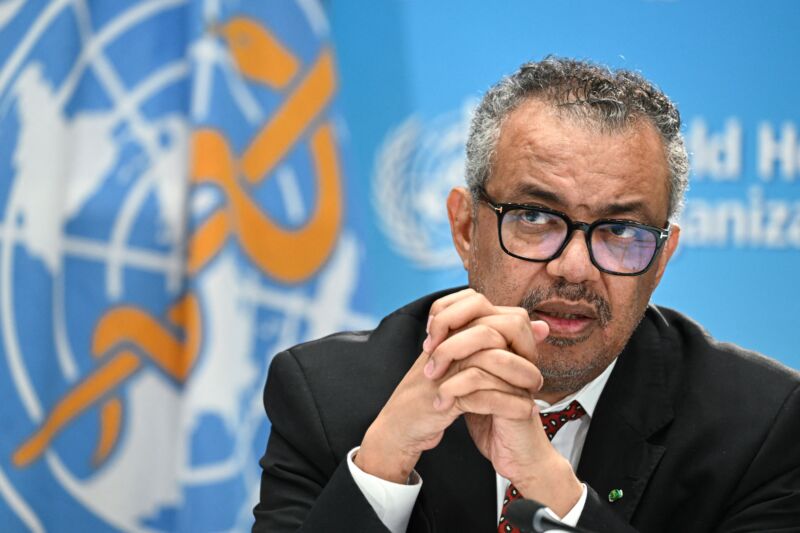The World Health Organization on Friday declared an end to the emergency phase of the COVID-19 pandemic while emphasizing that the health threat is not over.
"Yesterday, the Emergency Committee met for the 15th time and recommended to me that I declare an end to the public health emergency of international concern [PHEIC]," WHO Director-General Tedros Adhanom Ghebreyesus said in a press briefing Friday. "I have accepted that advice."
The WHO declared the PHEIC more than three years ago on January 30, 2020. Since then, the UN agency estimates that at least 20 million people have died from COVID-19, while the virus SARS-CoV-2 caused profound disruptions and devastation worldwide, leaving deep scars.
Though Tedros said he has "great hope" that the emergency is done, he quickly emphasized that the fight is not over. "Last week, COVID-19 claimed a life every three minutes—and that’s just the deaths we know about," he said. "As we speak, thousands of people around the world are fighting for their lives in intensive care units. And millions more continue to live with the debilitating effects of post-COVID-19 condition. This virus is here to stay. It is still killing, and it is still changing."
WHO officials emphasized that they expect to continue to see periodic waves of infections and new variants. While the crisis mode is over for now, countries need to transition to a new phase of managing the virus, keeping ready pandemic emergency responses. Officials warned that countries should not dismantle surveillance and response systems that have built up over the past three years, though we've already seen a scale-back of genetic surveillance for new variants.
The WHO also kept on the table the possibility of reinstating a health emergency declaration for COVID-19 if the global situation worsens. Tedros noted Friday that he had decided to exercise a never-before-used provision in the International Health Regulations to set up a Review Committee that will develop long-term recommendations for COVID-19 management.
"I will not hesitate to convene another Emergency Committee should COVID-19 once again put our world in peril," Tedros said.
Maria Van Kerkhove, the WHO's technical lead on COVID-19, made a moving plea for countries to continue to build and maintain pandemic preparedness and response plans:
Today, we are sitting here hopeful and humble, looking forward. Looking forward to what needs to be done, looking forward [to] what remains to be done to ensure that we don't lose the momentum over the last three and a half years. While being hopeful, looking to the future, we can't forget the amount of death that has happened. As the [director-general] put it, it didn't have to be this way. And it doesn't have to be this way again.
So we can't forget the images of the hospitals, of the ICUs filled to capacity, of medical gloves filled with warm water that are holding the hands of our loved ones who died, with healthcare workers who ensured that they didn't die alone. We can't forget those fire pyres, we can't forget the graves that were dug. I won't forget them. None of us up here will forget them. And that drives us every single day to do better and to do more. So while I am hopeful, and I really am, I'm quite emotional because there is more we need to do.



3175x175(CURRENT).thumb.jpg.b05acc060982b36f5891ba728e6d953c.jpg)

Recommended Comments
There are no comments to display.
Join the conversation
You can post now and register later. If you have an account, sign in now to post with your account.
Note: Your post will require moderator approval before it will be visible.